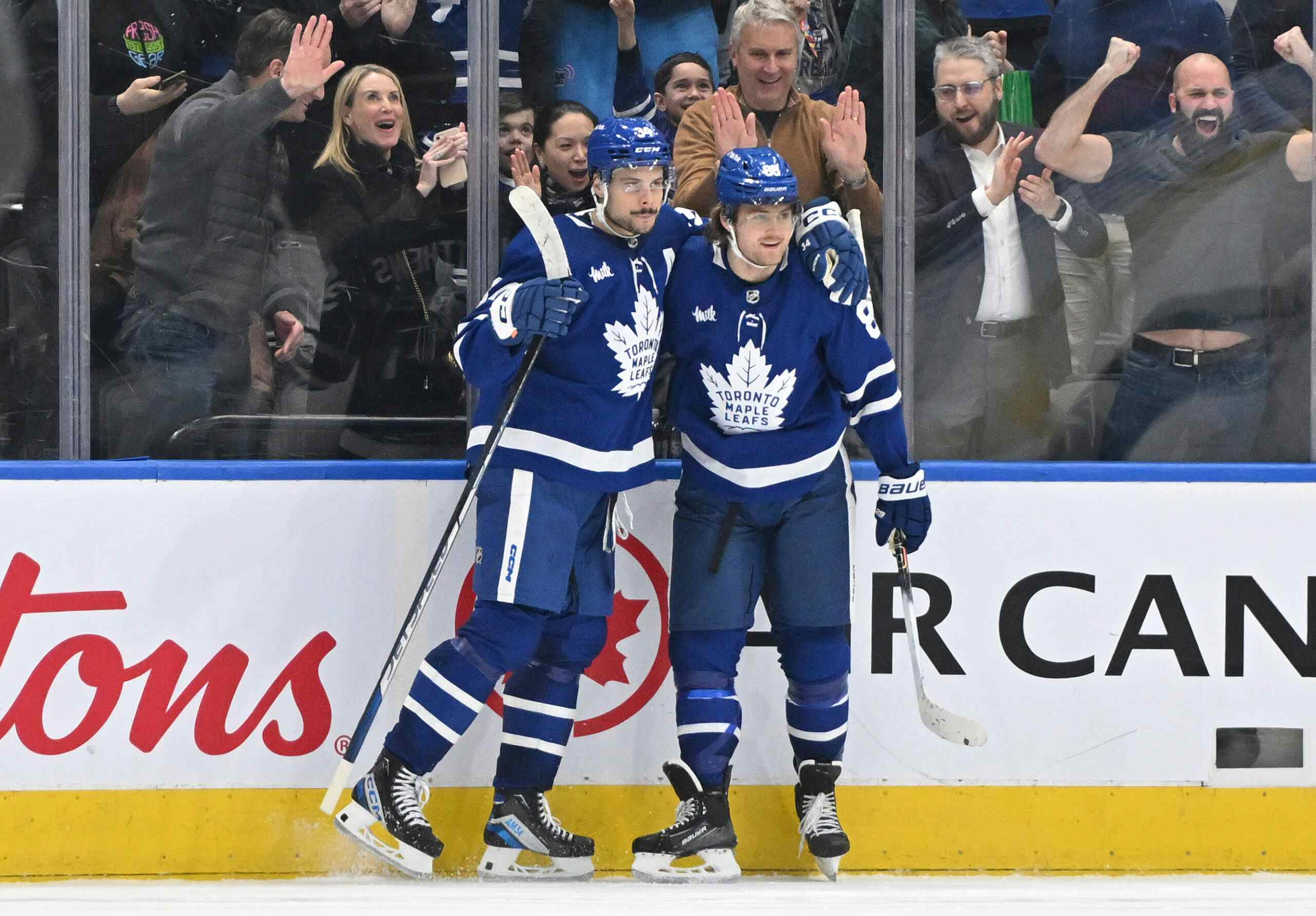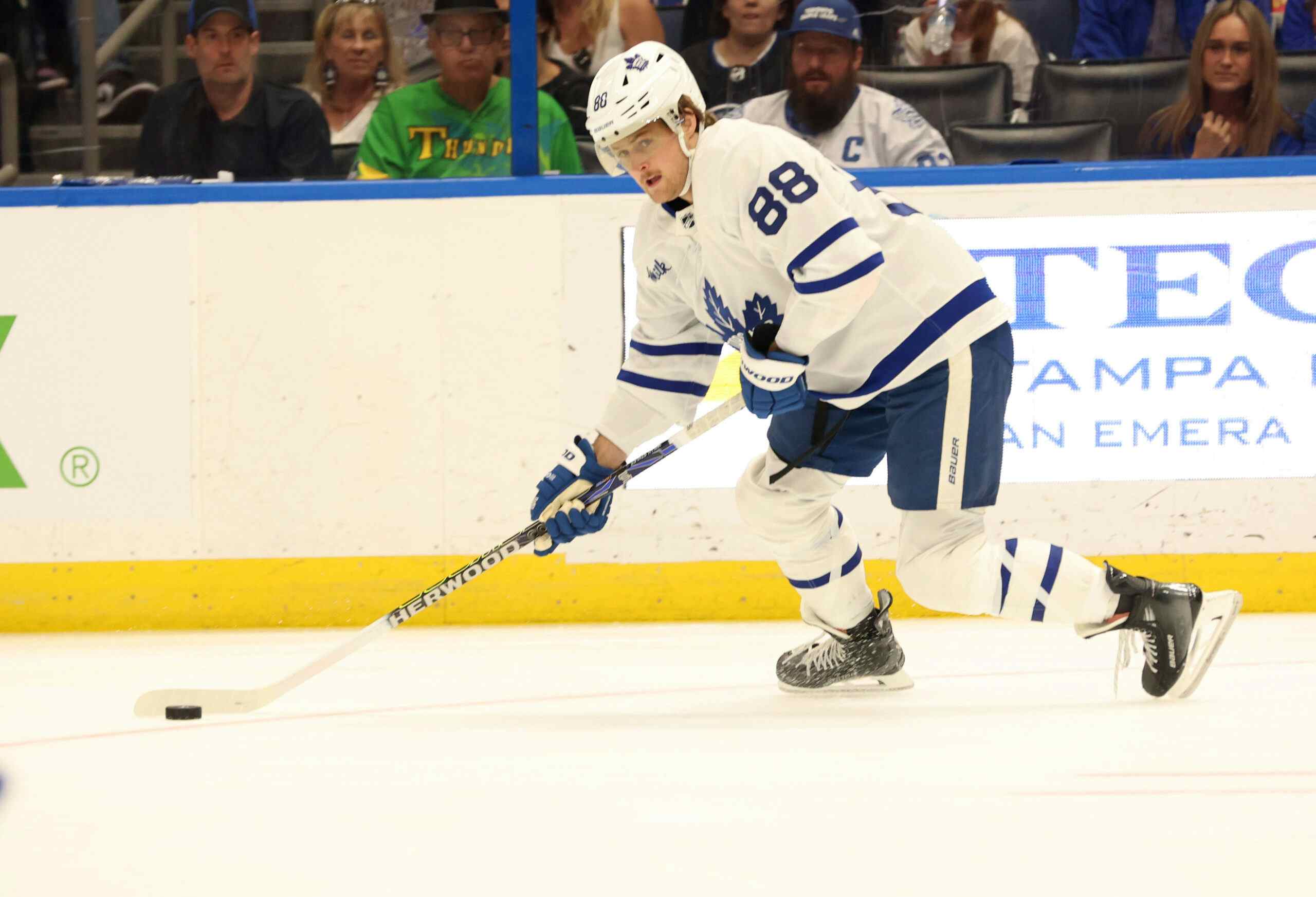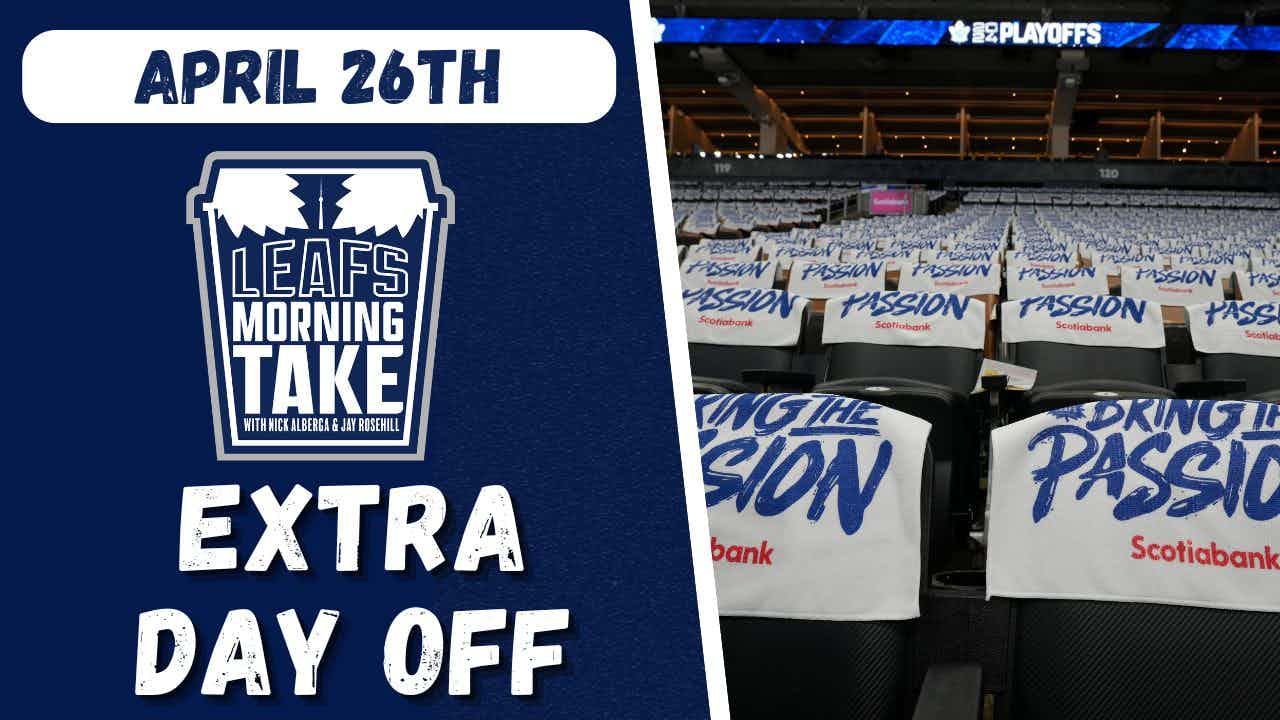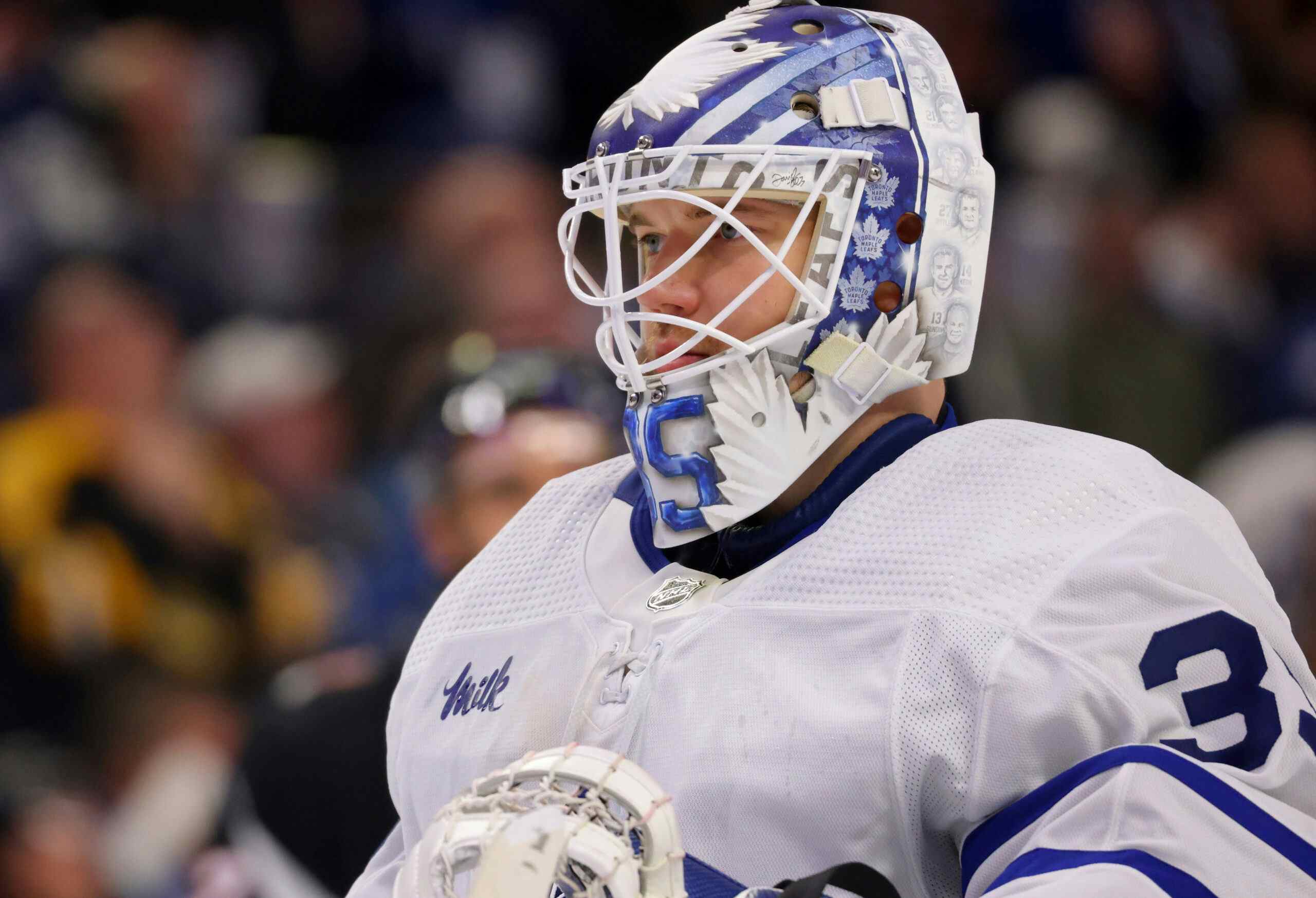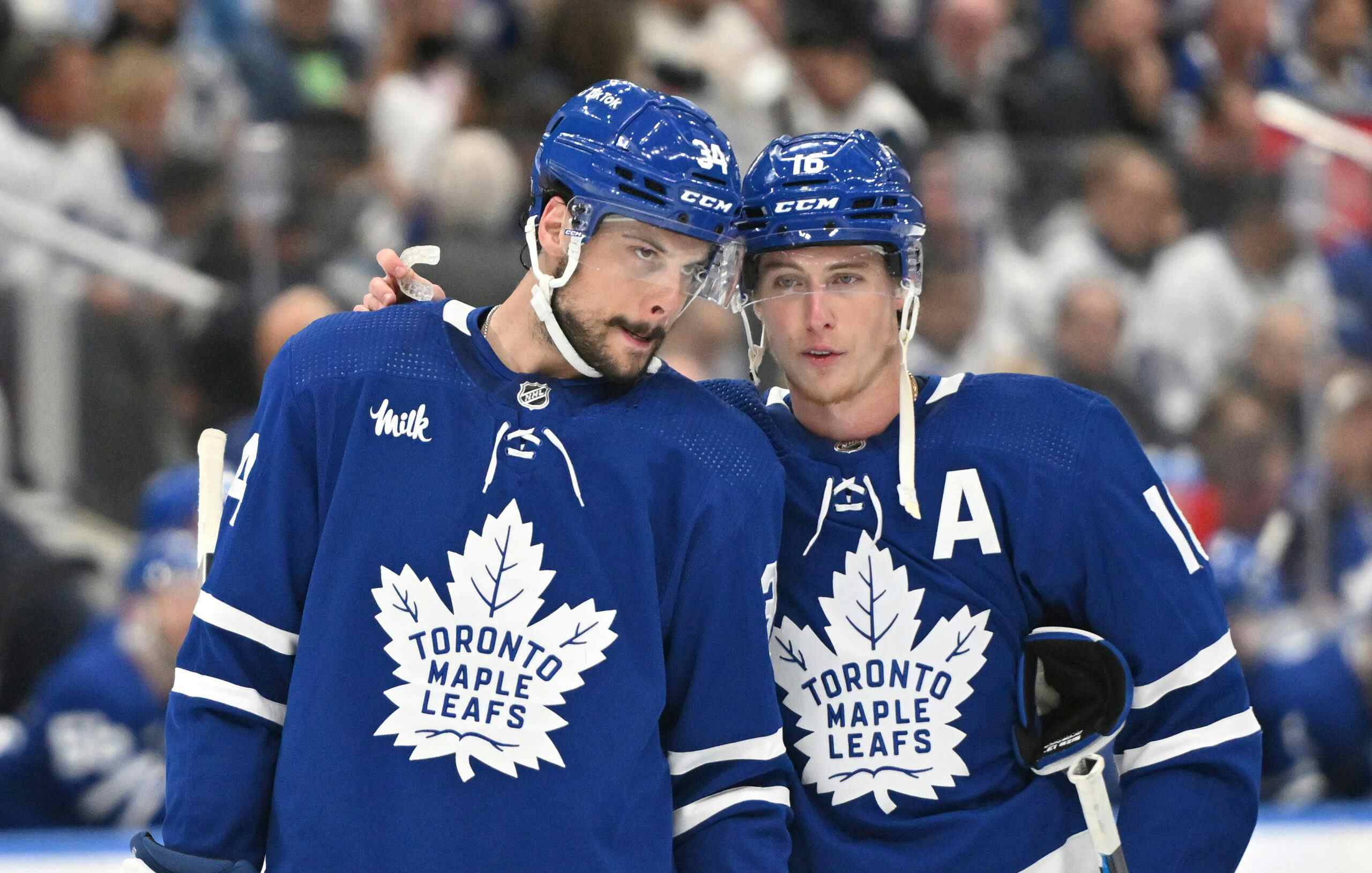Organizational stance on LGBTQ issues clear, but hockey culture has work to do
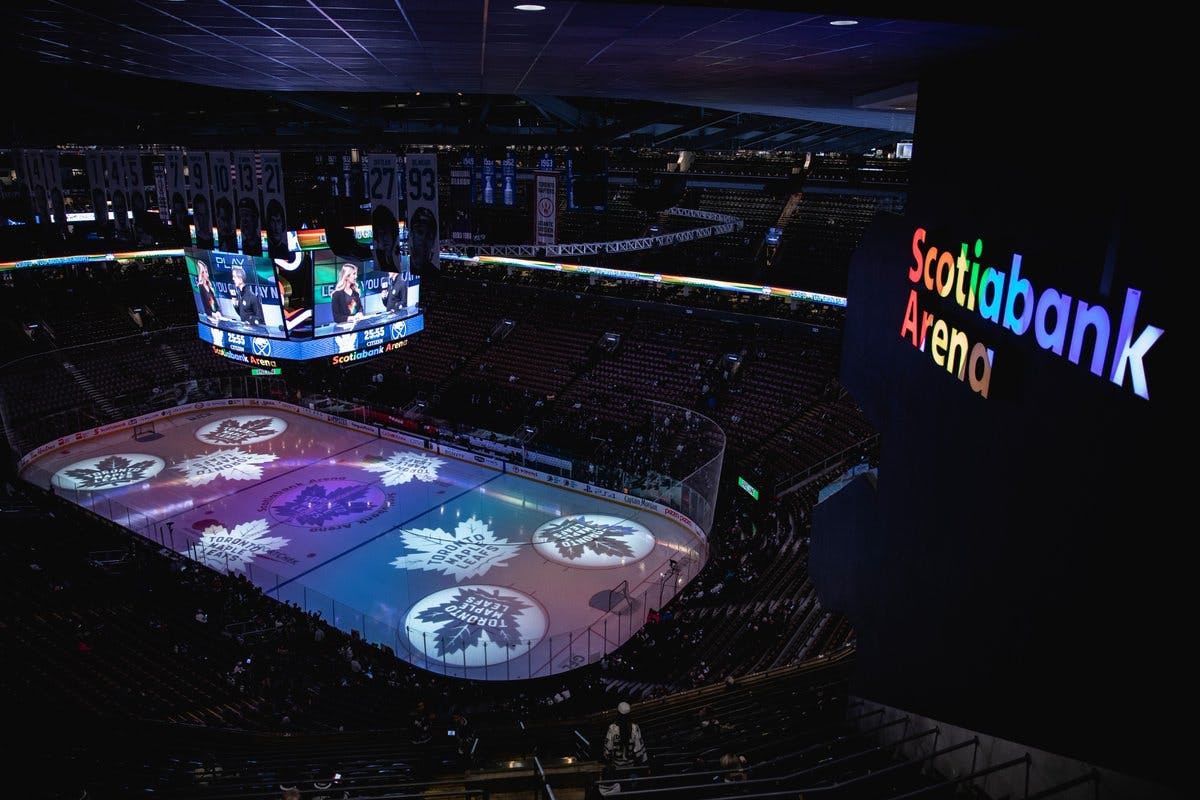
By J Jones
5 years agoOn March 11, the Tampa Bay Lightning beat the Toronto Maple Leafs 6-2. Someone in the arena also shouted what sounded like a homophobic slur. A video was posted on twitter, and various accounts accused Morgan Rielly of being the one to use the word.
The NHL has since investigated the incident and cleared Rielly, who joined Kyle Dubas in a press conference the afternoon of March 12 addressing the incident.
Failed to load video.
Dubas reaffirmed the organization’s commitment to making hockey welcoming to LGBTQ fans and players, framing the incident as an opportunity for the organization to reflect on what they are currently doing to ensure that this is the case.
They also received a lot of questions about microphones, who might have said it, and whether or not what was said was even the slur in question.
So, who actually said it, if not Rielly? Did anyone? Rag it?
Honestly? It doesn’t matter.
This incident is a microcosm of a larger issue, and if that larger issue isn’t addressed, this cycle will repeat itself over and over again. While the Leafs have reaffirmed their commitment to ensuring that language like this is eliminated from their team, their arena, and their community, plenty of organizations are much less interested in taking these steps. What happened on twitter right after the game was a perfect example of this – a storm of excuses, justifications, and minimizing.
“He probably feels really bad about it”
Great, I don’t care. Someone who is not part of the community targeted by a violent, hateful slur is not the person whose feelings should be prioritized in this situation. If your first instinct is to empathize with the person who has used a slur, you’re prioritizing their feelings over those of the people they have made their victims.
“He can’t be homophobic, he’s been to Pride”
Cool. Definitely no one bigoted has ever pretended otherwise in public due to social pressures to appear otherwise.
“It was the heat of the moment”
Being upset is not a reason to, or an excuse for, using slurs. Someone who says that a slur “just slipped out” when they were upset almost certainly not only thinks it all the time, they probably say it plenty behind closed doors. Using slurs is a habit – one anyone is capable of training themselves out of – but it is not something you do once in a void.
“It wasn’t in a homophobic way”
I will give $5 to anyone who can tell me how you can use a homophobic slur in a non-homophobic way.
It’s a homophobic slur my dude. It is homophobic in every single context.
“It’s just the way hockey is, if you don’t like it, don’t watch it”
This is what it comes down to: I love hockey. There are lots of LGBTQ people who love hockey, POC who love hockey, women who love hockey. They love hockey despite itself, despite the choices the NHL makes, despite what other fans say to them, despite a hundred little microaggressions that tell them over and over again that this space isn’t meant for them, that they’re not welcome here. Many persist because they love the sport, but there are also many who can’t, for whom the pervasive threat of hatred isn’t worth the joy of the game.
Fans shouldn’t have to be on edge that at any moment, one of their favourite players might be caught out using a slur because the use of slurs is so normalized in locker room culture that many don’t think twice before using them. Words and actions don’t exist in a vacuum. A slur might not mean anything to you, but what someone who is LGBTQ hears when you use ‘gay’ or any other word as an insult is that you think being gay is being less than, that it is something insulting and shameful. Whether you know it or not, that is what you and everyone around you is internalizing about LGBTQ people. Hate is insidious, it builds in small ways, is perpetuated in words and gestures. Something doesn’t have to involve blood to be an act of violence.
Whether or not the word was used in this instance doesn’t change the fact that these conversations need to be had. They need to be had with players, with coaches, with parents, and with fans, at every level of hockey. Bigotry only goes away when we collectively work to call it out at every opportunity, when we show at every level that it is unacceptable and will not be glossed over, waved away, or otherwise tolerated.
Dubas and co. have done a good job of saying all the right things about their commitment to doing the work to eliminate homophobia and transphobia across the organization. But there is still work to be done, by the Leafs and by teams across the league.
For me, and hundreds of other LGBTQ fans, the possibility was very real that one of our favourite players, who had made public expressions of support towards the LGBTQ community in the past, had shouted a homophobic slur. Because everything about hockey culture makes that a very real possibility for any player, at any time. And that is what has to change.
Recent articles from J Jones

